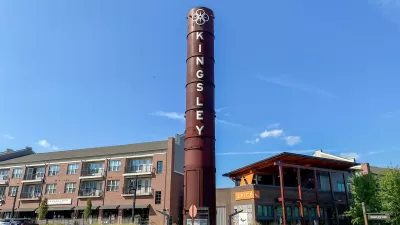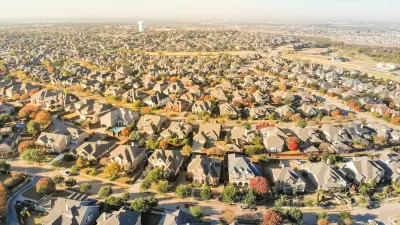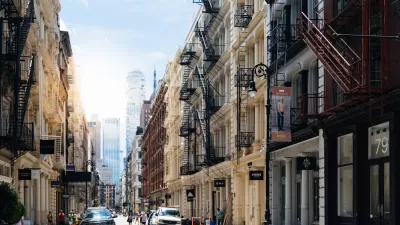What does it mean for cities and civic life when neighborhoods are viewed as products geared for individual consumption rather than ever-evolving communities?

“In August, the Vancouver Sun reported that a group of Douglas Park neighbors succeeded in convincing the city to reject a zoning variance application which would have allowed the expansion of a business near their homes. They felt this expansion threatened the tranquility and quality of life of their neighborhood,” writes Daniel Herriges in Strong Towns.
The offensive business in question? A new day care for up to eight children planned for the same building as an existing day care. Herriges doesn’t find this surprising, but writes that “the ordinariness nowadays of stories like this, in which residents of a place use legal and regulatory processes to aggressively litigate seemingly small-potatoes issues, does say something about today’s cities.”
Herriges refers to home-based businesses, reminding the reader that, for most of history, they were largely the norm. But as the pitch for suburban developments began relying on ‘peace and quiet’ as a premium amenity, “We’ve undergone a major cultural shift in the age of the Suburban Experiment toward ‘privacy and exclusivity’ as a dominant expectation of what one’s home should offer, even in cities.”
Not that quiet isn’t good, Herriges adds. But “What was different in the past was that you lived much of life within your neighborhood, so you acutely felt the trade-off between the advantages and disadvantages of living in a complete community.” In other words, “a certain amount of chaos and disruption in your environment was tolerable because the benefits were obvious.”
For Herriges, the proliferation of private cars changed this equation, making it easier for people to travel long distances and thus making them more willing to sacrifice nearby amenities for larger houses and yards. Yet the neighborhood in Vancouver where the day care would be located isn’t a suburb. It’s a highly walkable, urban neighborhood.
Herriges concludes, “I fear that the biggest obstacle to building stronger towns and neighborhoods, today, is a dominant culture that says that your neighborhood is no longer a project in community-building in which you are engaged alongside your neighbors.”
FULL STORY: Ixnay on the Ay-play

Alabama: Trump Terminates Settlements for Black Communities Harmed By Raw Sewage
Trump deemed the landmark civil rights agreement “illegal DEI and environmental justice policy.”

Study: Maui’s Plan to Convert Vacation Rentals to Long-Term Housing Could Cause Nearly $1 Billion Economic Loss
The plan would reduce visitor accommodation by 25% resulting in 1,900 jobs lost.

Planetizen Federal Action Tracker
A weekly monitor of how Trump’s orders and actions are impacting planners and planning in America.

Wind Energy on the Rise Despite Federal Policy Reversal
The Trump administration is revoking federal support for renewable energy, but demand for new projects continues unabated.

Passengers Flock to Caltrain After Electrification
The new electric trains are running faster and more reliably, leading to strong ridership growth on the Bay Area rail system.

Texas Churches Rally Behind ‘Yes in God’s Back Yard’ Legislation
Religious leaders want the state to reduce zoning regulations to streamline leasing church-owned land to housing developers.
Urban Design for Planners 1: Software Tools
This six-course series explores essential urban design concepts using open source software and equips planners with the tools they need to participate fully in the urban design process.
Planning for Universal Design
Learn the tools for implementing Universal Design in planning regulations.
Caltrans
Smith Gee Studio
Institute for Housing and Urban Development Studies (IHS)
City of Grandview
Harvard GSD Executive Education
Toledo-Lucas County Plan Commissions
Salt Lake City
NYU Wagner Graduate School of Public Service





























